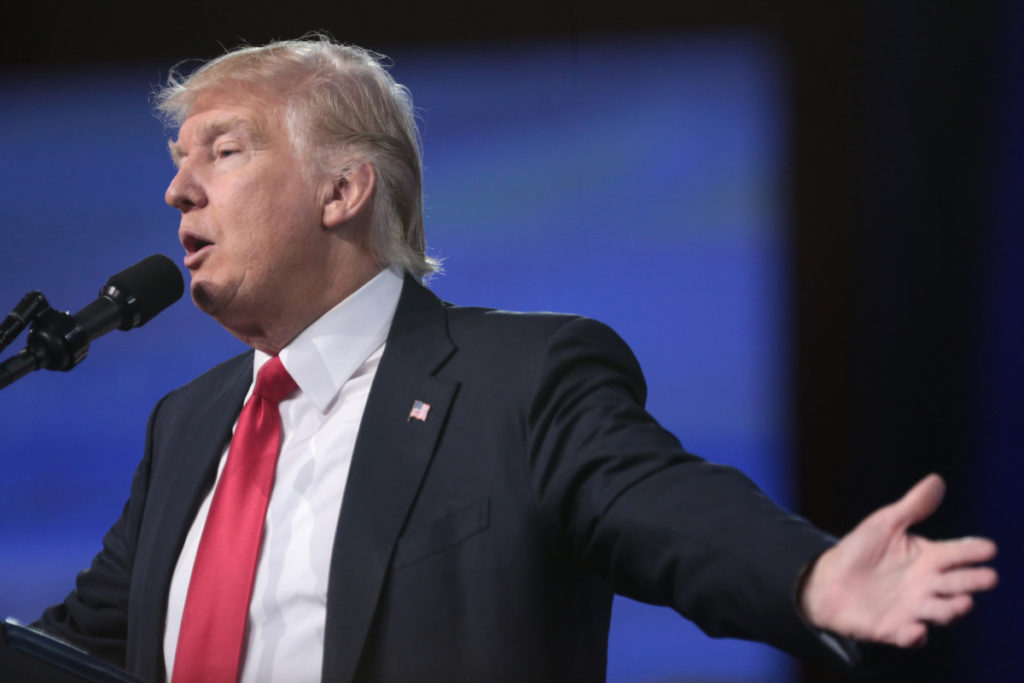The primitive thought processes of Donald Trump and his allies

In his book “Thinking, Fast and Slow,” Nobel laureate Daniel Kahneman invites us to consider the following person:
An individual has been described by a neighbor as follows: “Steve is very shy and withdrawn, invariably helpful but with little interest in people or in the world of reality. A meek and tidy soul, he has a need for order and structure and a passion for detail.” Is Steve more likely to be a librarian or a farmer?
Set your answer aside for a moment and consider the following task: without recourse to a calculator, multiply the numbers 17 and 24.
If you are like most people, you concluded, without much effort, that Steve is more suited to the job of librarian than farmer and therefore that is his likelier employment. The number you came up with when multiplying 17 by 24, after some not inconsiderable effort, was 408. You probably found the first task pleasant and easy, the second task at least a bit difficult. It may surprise you to learn that most people are wrong about Steve. There are 20 times more male farmers in the United States than male librarians, and since a “meek and tidy soul” is not a disqualifying qualification for a farmer, Steve was much more likely, statistically speaking, to be a farmer than a librarian. Chances are you got the multiplication problem right because you know the method for multiplying numbers together and, even if you didn’t like the process, whether you did it in your head or with a pencil, you arrived at the correct conclusion.
These two different examples highlight the two kinds of thinking that humans engage in and that psychologists refer to as “System 1 thinking” and “System 2 thinking.” System 1 thinking is fast thinking, intuitive, often the immediate kind of thinking we refer to as “common sense.” We have evolved System 1 thinking because it’s useful in survival scenarios where life and death may depend on quick thinking and where there is no time to ponder. System 2 thinking is more deliberate, rational, dependent on careful planning or known paths of problem solving and reasoning.
Much that is wrong with modern day political thinking is due to System 1 thinking. There’s a good chance that when I told you that a farmer was twenty times more likely a profession than a librarian for a man like Steve, you felt an impulse to defend your choice. You saw Steve an unlikely farmer even so, and your instincts compelled you to demonstrate that Steve is “the exception that proves the rule.” Even if that impulse overcame you only fleetingly, it was still there nonetheless. System 1 thinking is often resistant to reason.
The problem is most emphatically not that System 1 thinking is always wrong and System 2 thinking is always right, but that System 1 conclusions are hard to correct, where it’s much easier to find and point out the errors in System 2 conclusions. Readers tend to be good at System 2 thinking. In fact, if you’ve gotten this far in this article chances are you’re fairly good at System 2 thinking, because the subject demands reflective cognition, and more than casual attention.
Donald Trump is not a reader, so it comes as no surprise to any psychologist acquainted with the theory that Trump is almost exclusively a System 1 thinker. So are his allies and followers. Readers and educated people are rare among his supporters, but where they exist the secret to their survival lies in that when they are thinking about Trump they almost wholly abandon their System 2 and rely almost exclusively on their System 1 thinking. This explains why some of his better educated adherents often talk about a different set of rules when speaking of Trump, why they appeal to standards alternative to “the usual ones.” Indeed, this may be what Kellyanne Conway actually meant when she talked about “alternative facts.” She was desperately appealing to a need to throw away System 2 rules when speaking about Trump, but she simply lacked the vocabulary to express it convincingly. In any case, she was wrong.
If a criticism could be made of Barack Obama, it might be said that he is so comfortable with System 2 thinking that he may have been slightly out of touch with a System 1 audience. Obama is a brilliant man, and just as Einstein spoke of “the pleasure of pure thought,” or just as Isaac Newton could hold a complicated mathematical conundrum in his mind for hours and maintain a laser focus, Obama loves the challenges and joys of System 2. It was this ability that made him so effective a president. It also made it easier for him to see when he was wrong and fix it.
Donald Trump’s almost complete lack of ability to use System 2 thinking is not the reason why he and his administration are in such a mess. His criminal instincts and a lifetime of cheating and lying got him there. We can therefore be thankful that he’s bad at System 2 thinking. He’s only where he is because, despite his being an inept thinker and a mediocrity, he began his life with a half billion dollar advantage. It is our good fortune that he doesn’t know how to reason critically. It is a vestige of my own System 1 thinking to hope that, in that sense, our good luck continues to hold.

Robert Harrington is an American expat living in Britain. He is a portrait painter.
